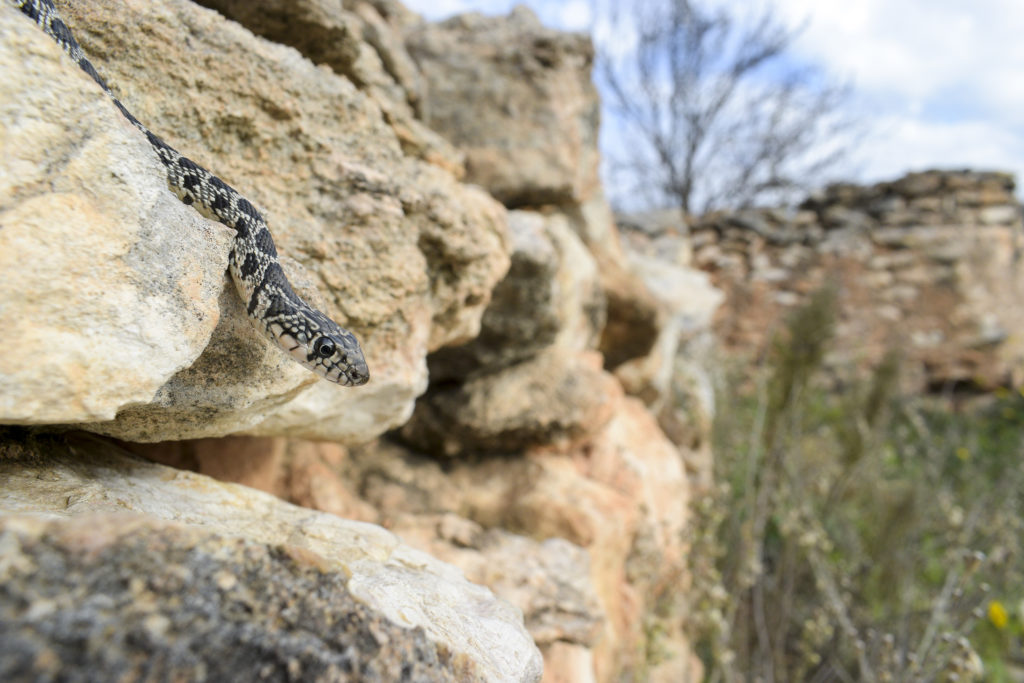Oriol Lapiedra
Behaviour & Evolution
Ecological and evolutionary consequences of a rapidly spreading invasive predator
Ibiza was a predator-free island until the early 2000s. Since then, rapidly spreading invasive snakes have decimated populations of the endemic wall lizard and also may have changed the functioning of the entire biological communities.
Unraveling how animal behavior can facilitate evolutionary adaptation to rapidly changing environments is fundamental to develop a predictive understanding of invasion processes. This is particularly important for biodiversity conservation because biological invasions represent a major cause of local extirpation and global extinction of animal populations, especially on islands.

We are studying a real case of biological invasion as a natural experiment in the Mediterranean. In Ibiza, populations of the endemic wall lizard Podarcis pityusensis, a cultural symbol of the island, are facing a rapidly spreading invasion of whiptail snakes Hemorrhois hippocrepis. We are evaluating the consequences this invasion is having for evolutionary dynamics and population persistence of the lizards. Importantly, we are also monitoring the cascading effects of lizard population declines of this keystone species for the functioning of entire biological communities on the island.